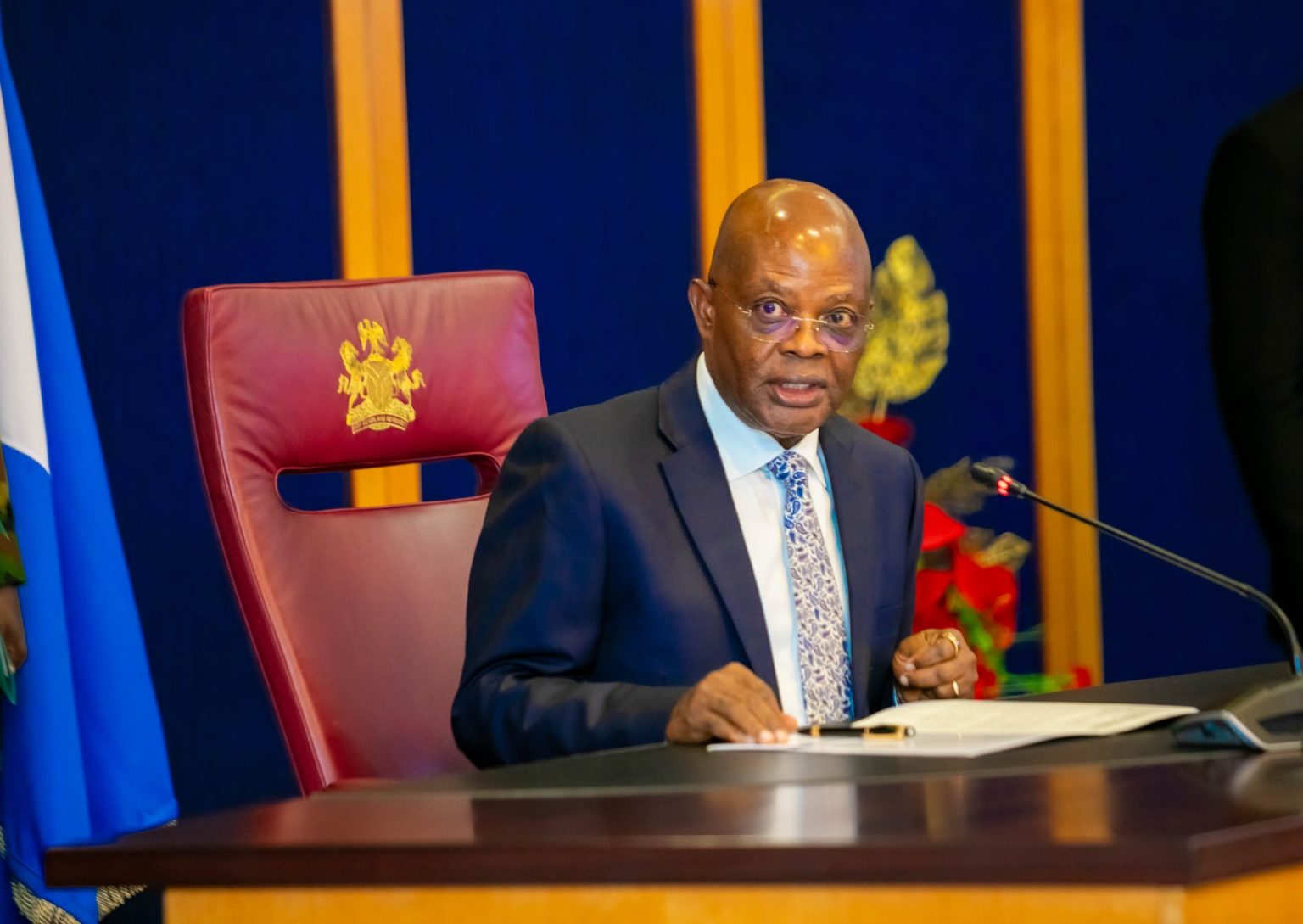A political confrontation may be brewing in Rivers State as the State House of Assembly has announced plans to investigate the expenditure of over ₦254 billion received during the six-month emergency rule under the leadership of Vice Admiral Ibok-Ete Ibas (retd.), the immediate past sole administrator.
Ibas, who vacated office on 17 September 2025 following the expiration of President Bola Tinubu’s emergency proclamation, had overseen the state without an elected executive or legislature for half a year. During this period, Rivers received over ₦254.37bn from the Federation Account Allocation Committee (FAAC), according to data obtained by New Daily Prime from the National Bureau of Statistics and other sources.
The Speaker of the Rivers State House of Assembly, Martin Amaewhule, presiding over the first plenary since the return of democratic governance, announced that the Assembly would investigate how funds were spent under Ibas’ administration. The probe, he said, will focus on expenditures from the Consolidated Revenue Fund, contracts awarded, and general fiscal management during the emergency period.
“The House has resolved to explore the process of knowing what transpired during the emergency rule with regard to spending,” the Speaker stated.
Breakdown of funds received
Between March and August 2025, Rivers State received an average monthly allocation of ₦42.4bn, with ₦133.24bn more than half coming from the 13 per cent oil derivation. Statutory allocations, VAT, and other inflows such as the Electronic Money Transfer Levy and exchange gains made up the remainder. The state also lost ₦26.31bn to foreign loan servicing, further highlighting fiscal constraints.
Despite these significant allocations, the 2025 Budget Implementation Report has not been published, fuelling suspicions about the use of public funds during Ibas’ tenure.
Civil society demands transparency
Civil society organisations have added their voices to growing calls for accountability. Chairman of the Coalition of Civil Society Organisations in Rivers State, Enefaa Georgewill, said the process that brought Ibas into power was questionable, and his financial stewardship lacked transparency.
“We suspect corruption. Almost all major projects are stalled, even the Assembly complex remains unfinished,” Georgewill said. He urged Governor Siminalayi Fubara to establish a panel of inquiry to examine both FAAC inflows and internally generated revenue (IGR).
Emma Obe of the Civil Liberties Organisation echoed similar concerns, arguing that the emergency government failed to follow constitutional procedures.
“This government must give an account of what they have received. Whoever spends public money without accounting for it will eventually answer to the people,” he said.
Ibas responds: ‘A fool’s errand’
Reacting to the Assembly’s move, Ibas, through his Senior Special Adviser on Media, Hector Igbikiowubu, dismissed the probe as futile. He argued that since the Assembly neither appointed him nor supervised his activities, they lacked the authority to investigate him.
“The administrator was appointed by the President and supervised by the National Assembly. So, probing the administrator amounts to probing both the President and the National Assembly,” Igbikiowubu said. He described the lawmakers’ efforts as a “fool’s errand” and suggested that their move was more symbolic than substantive.
Governor Fubara returns, calls for prayers
Meanwhile, Governor Fubara has resumed duties following the expiration of emergency rule and has called for prayers and unity. At a thanksgiving service in his hometown of Opobo, he thanked the church and people of Rivers for their support during the crisis and vowed to rededicate himself to the service of the state.
“Our being here is private; we came simply to worship in our home church. When my story ends, this church will lead me to my next journey,” Fubara said. He emphasised the importance of peace and governance rooted in service and humility.
Background
Rivers State had been under emergency rule since March 2025 after a bitter power struggle between Fubara and his predecessor, Nyesom Wike. The President’s controversial decision to suspend all elected officials, including the governor, was endorsed by the National Assembly, though it faced legal challenge from PDP governors.
The state has since returned to democratic governance following a reconciliation between key political actors. Local government elections were held in August, with the APC winning 20 of 23 seats.
As the House pushes forward with its probe, and civil society demands transparency, the post-emergency governance landscape in Rivers may yet be defined by accountability battles and legal questions about the limits of presidential authority.



